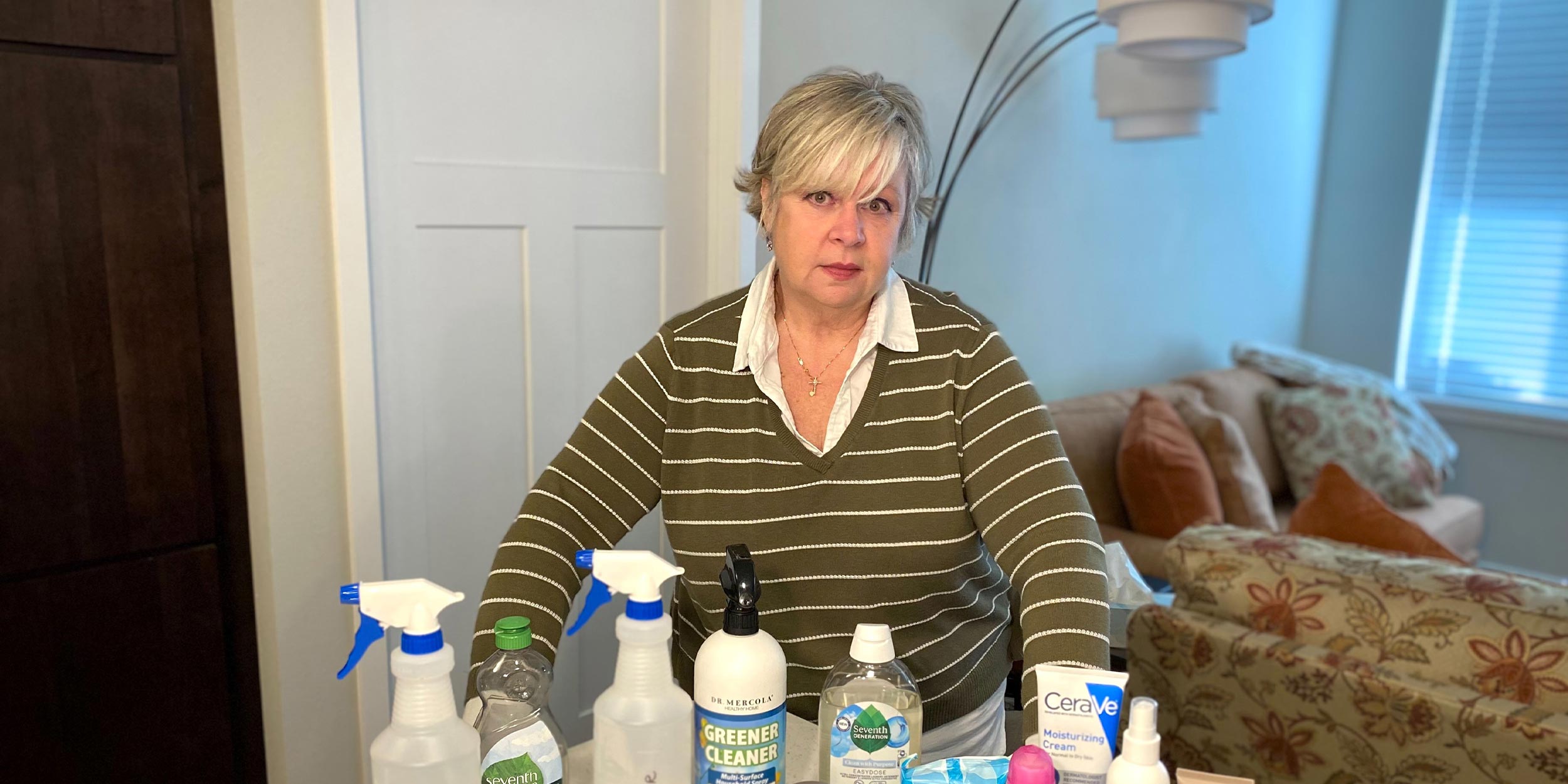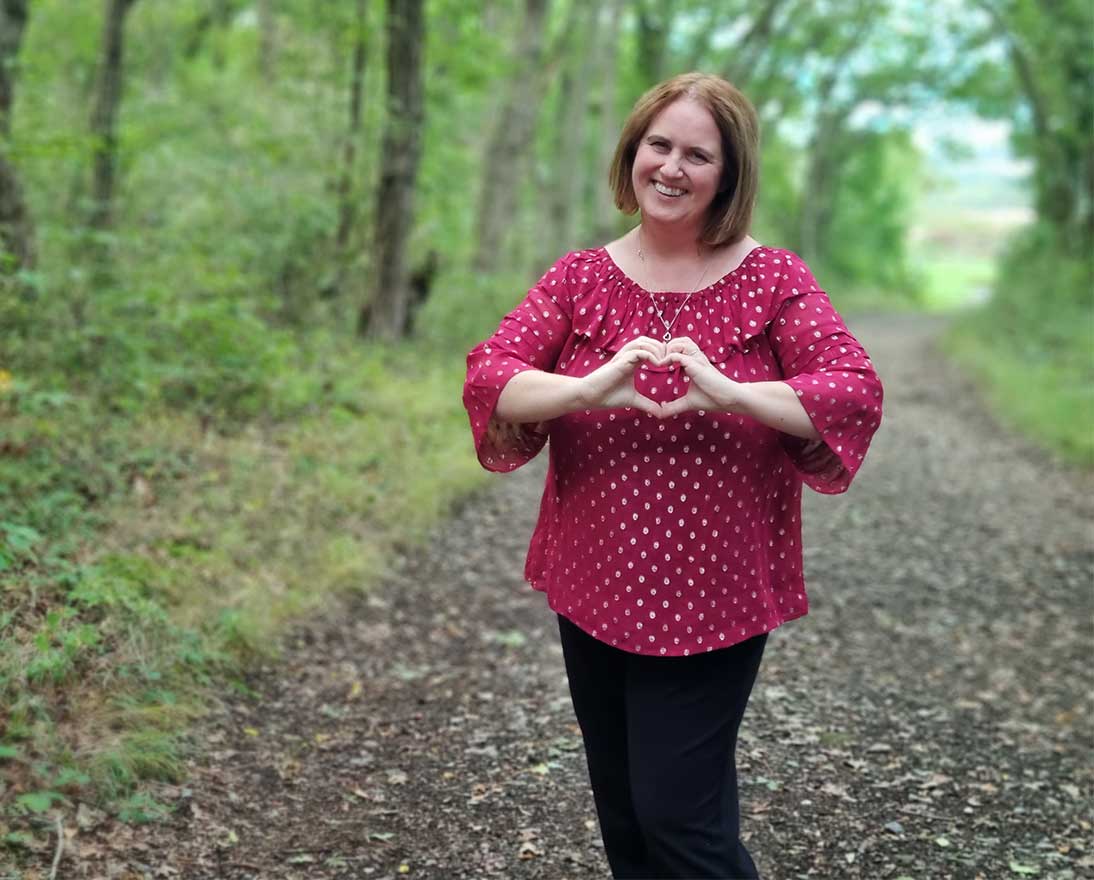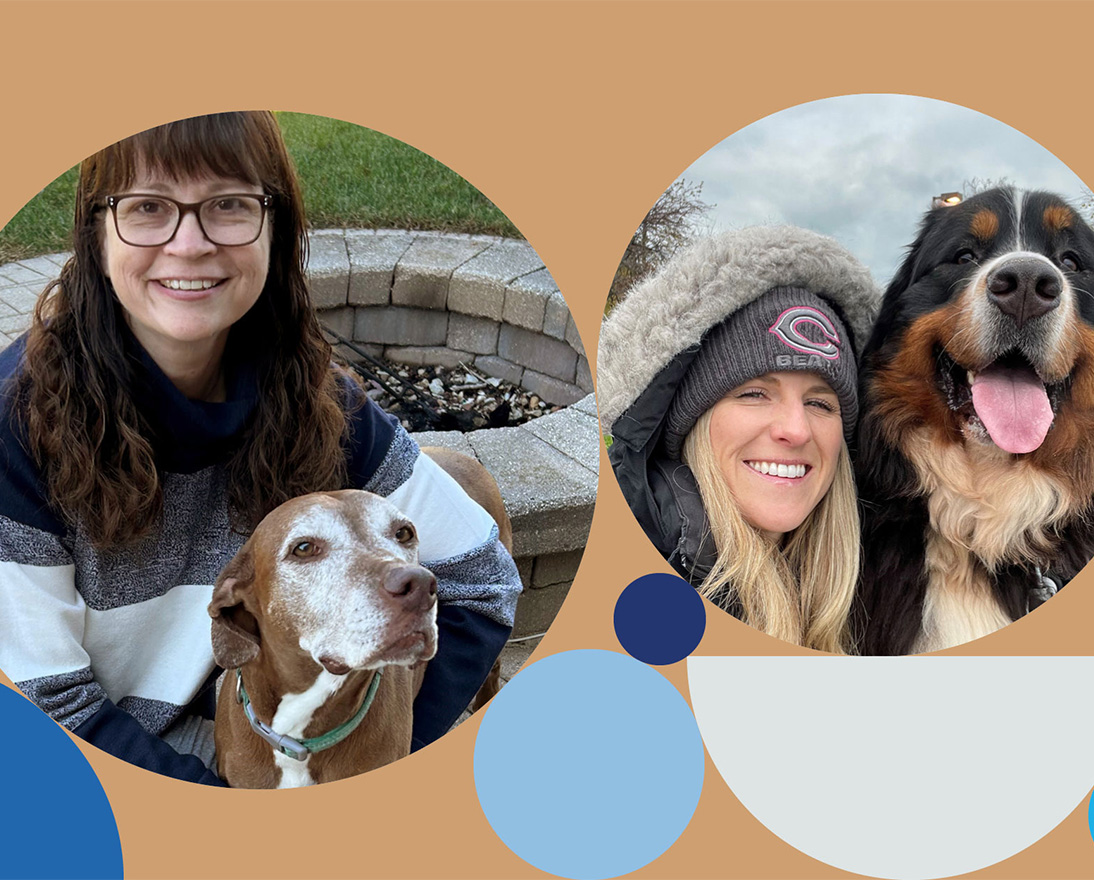Your fragrance could kill me: Living with multiple chemical sensitivity
PeopleArticleNovember 28, 20228 min read
Lori Lovkvist has a little-known condition called multiple chemical sensitivity. It means she can have life-threatening reactions to chemical scents in everyday products. But the main triggers are other people. This has devastated Lori’s life and forced her to isolate from the world.
Imagine having an invisible illness that has no known cure. A mysterious condition that has wrecked your social life, impacted your ability to work and travel and has even contributed to the loss of many friends and relationships. A condition so rare that some healthcare practitioners actually question if it should be classified as a medical illness, which causes some people to question your symptoms.
This, sadly, is what Lori Lovkvist must deal with. An employee from Zurich North America, Lori has a chronic condition called multiple chemical sensitivity that has had a devastating impact on her life and left her feeling embarrassed about her symptoms.
It is well known that high doses of some chemicals make people sick. Other irritants such as pollution and tobacco smoke can also exacerbate conditions like asthma. But people with multiple chemical sensitivity can detect very low levels of chemicals found in everyday products and may have extreme allergic-type reactions to minuscule traces of chemicals at levels far below those usually considered to be harmful.
It is believed multiple chemical sensitivity stops the body’s immune and detoxification systems from processing toxins efficiently. But there are no reliable tests to diagnose the condition and no proven treatments or cure.
For Lori, she is most likely to have an adverse reaction to synthetic fragrances. “Soap or shower gel, moisturiser, make up, hair products, deodorant, laundry products, the list goes on. Basically, anything with chemical fragrance or scent, even new furniture or new clothes can trigger a reaction,” Lori says. It means she must carefully choose her products, but the challenge is that the most common triggers are other people.
The symptoms of multiple chemical sensitivity
“After I developed this problem, we realized the makeup my mom wore made me quite ill from the fragrance, and so she had to change her makeup. I can smell something that you put on two days ago if you didn’t shower. I can smell everything,” Lori says.
“I generally say – and this is a poor description but it’s what most people understand – I have a bad allergy to chemical fragrances. And people go, ‘Oh, OK,’ and they get that. But when you say allergy, people often think, ‘Oh, she’s going to get the sniffles, or her eyes will go red.’ They don’t realize it’s much more serious than that.”
Lori has been rushed to the emergency room on several occasions. Once, at a conference, she was exposed to cologne that forced her to spend a couple of days in the hospital and an additional month off sick from work as it caused her severe breathing problems.
“Some chemical smells will make my eyes or ears itch, or my nose will run, or my throat will start to close,” Lori says. “These are likely to happen if I smell someone’s deodorant or a hand sanitizer as many have fragrance. But when I smell diesel and some men’s cologne, particularly musk, then I may have instant cramps, brain fog or a migraine headache. I could even have a full-blown asthma attack and die from the personal care products people use. The fear of not knowing what reaction I might have is fairly crippling.”
The causes of multiple chemical sensitivity
Multiple chemical sensitivity often develops after exposure to a large amount of a single chemical, such as pesticides or industrial solvents (sometimes from a newly decorated home or office). It can also develop from long-term exposure to low levels of a single or multiple agents. Lori first became aware of her sensitivities in 2009 after she took a new job requiring her to commute to downtown Chicago. Over time, she realized the train’s diesel fumes and the smell of cologne on the office floor were becoming increasingly pungent to her. “I gradually noticed a problem,” she says. “It eventually got to the stage where I would get to work, and I couldn’t breathe. And then I developed asthma.”
As her condition deteriorated, Lori visited dozens of traditional and non-traditional doctors. She has tried various traditional, holistic and Chinese medical treatments to solve the issue, including acupuncture, Reiki energy healing, liver and kidney cleanses, numerous dietary changes, chiropractic care, meditation and counseling. “I’m pretty much willing to try just about anything,” Lori says.
But she has never received the answers she hoped to find. Instead, Lori has discovered some ways to manage her symptoms. She uses eucalyptus smelling salts and peppermint gum that “confuse her smelling ability,” and she wears charcoal filter nose plugs or face masks. Daily cortisol nasal inhalers and asthma preventative medication also help the reactions. But the best way to escape an adverse reaction, says Lori, is to avoid people, unfortunately.
Lori is reduced to tears as she discusses how multiple chemical sensitivity has impacted her life and isolated her from the world. “I used to be very outgoing and social, going places and doing things all the time. But my ability to do normal things – like eating out or going to the store, church, movies and events – all abruptly stopped. I also stopped traveling for years.
“My husband and I would go to restaurants around 3 p.m. to try and avoid people,” she continues. “But if someone sat down close to us wearing a fragrance that really bothered me, I’d have to go sit in the car and my husband would have our food wrapped. Other times we would go to friends’ houses and find out when we got there, they had forgotten to switch off their plug-in air fresheners. I’d walk through the front door and within seconds have a bad asthma attack and go home. It really impacted our lives. It has been emotionally devastating.”
Lori says she feels ashamed of her medical condition. “I’m always apologizing for it as if I had control over it,” she says. “I feel as though I’m putting people out to ask them not to use their fragranced personal care products around me, but I shouldn’t have to feel this way. I just want people to be more knowledgeable of my condition.”
Lori’s mental health hit rock bottom in 2019, and she began to suffer from severe depression and anxiety. But the COVID-19 pandemic unexpectedly offered some respite.
Lori no longer felt self-conscious wearing her charcoal filter mask and, as working-from-home became the norm, she was able to reduce her time in the office and her exposure to fragrances. But there was a downside: The use of fragranced hand sanitizers and other sterilizing cleaners became ubiquitous.
At the start of 2020, Lori also got a new boss, Barry Franklin, at Zurich North America, whom she describes as being very sympathetic. “He has supported accommodations for my condition. For instance, he’ll ask people sitting near me to be fragrance-free, and he supported the purchase of an office air purifier positioned near my desk that reduces chemical toxins in the air.” Lori also requested fragrance-free soap, sanitizer and desk wipes for her office floor, and the building office complied.
It is not just her boss providing support, but a core group of friends and family who are happy to take steps to be there for Lori. “They know I have this issue,” she says. “They know they can’t wear perfume or wash their hair or use hair products before seeing me, and they will use the personal care products I provide them if their own is scented. Some of my family even switched their brand of laundry detergent and stopped using fabric softener so their clothes didn’t smell.”
Having this support helps to lift Lori’s spirits as well as alleviate her symptoms. “One of the worst things is people’s judgment. They don’t understand what I go through and are often not supportive. So having the support of my boss, friends and family makes a big difference.”
A positive outlook?
Lori has also been given reason for optimism in recent months. She visited celebrity Australian energy healer Charlie Goldsmith when he visited Raleigh, North Carolina, and was treated several times over three days. Lori says her hyper ability to smell scents has been reduced by about 50 to 75 percent.
The flight to Raleigh also gave Lori the courage to go on a two-week vacation in September to visit relatives in Sweden. “It was fantastic. I felt almost normal,” Lori says. “I also went to many outdoor venues and outdoor concerts this year. I am just trying to move forward and better understand my ‘new normal.’”
The hope is that Lori’s condition will improve, but there are no guarantees. It is likely that she will have to continue relying on the goodwill and kindness of people around her.



